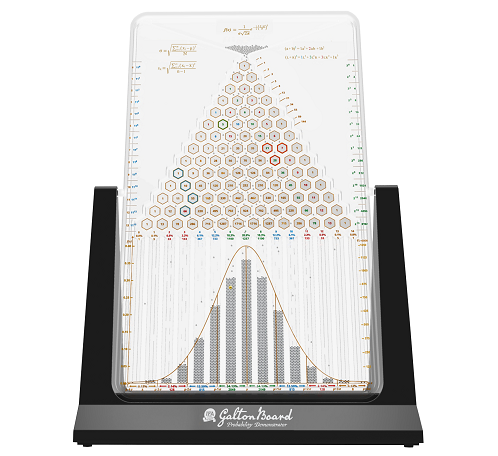Each year, money managers and financial pundits release their latest predictions about what's most likely to happen in the next 12 months. Likewise, we like to look back and see just how their forecasts panned out.
In a topsy-turvy year like 2022, did these prognosticators prove to have a more accurate crystal ball than anyone else? Here is a sampling of what we discovered in terms of market forecasts by large brokerages and fund managers. (The previous calendar year's predictions can be reviewed by reading our article here.)
Wells Fargo
In its 2022 Outlook report ("Which Way to the Recovery?"), the Wells Fargo Investment Institute wrote: "We anticipate interest rates will move somewhat higher over the course of 2022, and, while it is not our base case, we wouldn't be surprised if the US Federal Reserve starts increasing rates before the end of the year." 1
Well, the U.S. Federal Reserve not only started increasing rates fairly early, but it also got more hawkish as the year progressed. Over the course of 2022 there were seven rate hikes — taking the target fed funds rate from around 0% early in the year to 4.25-4.50% by early December.
Fidelity
Fidelity International's global head of solutions and multi-asset products, Henk-Jan Rikkerink, noted in his forward-looking piece that 2022 looked like another — yet perhaps slower — growth year for stocks. Referencing 2021's strong run, he observed: "The current business cycle is far from over and we are optimistic about the outlook for equities over a 12- to 18-month horizon." 2
In fact, major blue chip stock indexes suffered double-digit percentage losses in 2022. For instance, the U.S. bellwether S&P 500 index posted its worst annual performance since 2008's global financial crisis. The Nasdaq, which is led by shares of big tech names like Apple, Tesla and Microsoft, by year's end had recorded four straight negative quarters — something that hadn't happened to the index since 2001.
J.P. Morgan Chase & Co.
The bank's global research team in December 2021 attempted to look ahead to forecast a new year. Such an analysis determined that "we expect (the) S&P 500 to reach 5,050 on continued robust earnings growth as a labor market recovery continues, consumers remain flush with cash, supply chain issues ease and (the) inventory cycle accelerates off historic lows." 3
In fact, the S&P 500 index closed the year at 3,840 points, roughly 24% lower than J.P. Morgan's top researchers had predicted.
Morgan Stanley
In its outlook for stocks in the coming year, Morgan Stanley's applied equity advisors group forecast a possibility for "modest equity returns" and "opportunities for generating alpha" in 2022. The team also saw "opportunity in growth/technology stocks" in the coming 12 months. Such an outlook piece added: "We are less negative on growth than we have been, given the magnitude of recent underperformance vs. the broad market. Recent underperformance despite numerous impressive earnings reports means many of the large-cap growth names are now trading at very reasonable valuations." 4
The reality is that growth stocks, as categorized by Morningstar, were pummeled by rising interest rates in 2022. It wound up producing the style category's worst calendar year peformance in over a decade. Later in the year, however, value-style stocks staged a significant comeback. As a result, the independent data provider's index for domestic small-cap value held up significantly better than its sister small-cap growth benchmark. At the same time, key U.S. large-cap value indexes also lost notably less than cousin U.S. large-cap growth indexes.
DoubleLine Capital
The CEO and Chief Investment Officer of DoubleLine Capital, Jeffrey Gundlach — the so-called "bond king" of active fund managers — told industry trade publication ThinkAdvisor that "when the U.S. dollar starts to decline, you're going to see a tremendous outperformance by non-U.S. stocks. Emerging markets will be a very strong performer when that happens." 5
Contrary to his predictions, the greenback gained more than 7% against a basket of other major currencies in 2022, according to Morningstar. The conflict in the Ukraine, high oil prices, inflation and a stronger U.S. dollar weighed on emerging markets during the year. As a result, broadly followed emerging markets indexes fell by double-digits in 2022.
Worth noting, however: In the fourth quarter, several diversified benchmarks tracking stocks in developing economies produced significant rebounds that outpaced major U.S. and international developed stock indexes. This reiterates not only the futility of trying to outguess millions of other people investing at any given time in developing markets, but also just the inherent volatility of emerging markets as an asset class.
Blackstone
Byron Wien and Joe Zidle, both top executives in the firm's private wealth solutions group, predicted that 2022 would deliver banner returns for precious metals and cryptocurrencies. The veteran market researchers at the private equity giant forecast a 12-month period in which "gold reclaims its title as a haven for newly minted billionaires, even as cryptocurrencies continue to gain market share." 6
Yikes. On the one hand, spot gold prices in early March reached a year high of $2,049 following Russia's invasion of Ukraine. In October, those futures prices had sunk to a low of $1,627. By year's end, gold traded at a value of $1,824. From the beginning of the year, gold experienced a gain of only 0.5%, according to CNBC.
The year was particularly difficult for digital alternative currency traders in Bitcoin and the like. From late 2021, cryptocurrencies on the whole lost nearly $2 trillion in market value. The declines were attributed to the fall of major crypto players, the scandal regarding FTX (a large crypto exchange) as well as widespread calls for additional regulations and greater public transparency.
In the most recent update of his classic book "Winning the Loser's Game" (McGraw Hill, eighth edition), Charles Ellis warned about growing media attention of precious metal funds in recent years, "particularly since the creation of gold ETFs." The founder of institutional consultancy Greenwich Associates also wrote:
"Commodities are economically inert and so do not develop increasing economic value. Changes in their prices are driven only by changes in demand or supply. Those who buy and sell commodities are not investing; they are speculating that they know more or better than the market."
Pundits and prognosticators didn't just go astray in gold, though. As reviewed in our latest survey of 12-month forecasts by large brokerage houses and active fund managers, the prevailing message is clear for long-time fund investors: No matter what they're prognosticating — whether it's stocks, bonds or alternative markets — active managers haven't been able to produce successful track records of timing markets, either in the shorter- or longer-term. (See also our reports on the most current SPIVA studies and Dalbar research.)
In 2022, we saw a repeat of ill-fated predictions made the year before by some of Wall Street's most venerable names. As the legendary investor Benjamin Graham once stated: "The investor's chief problem, even his own worst enemy, is likely to be himself."
To help you stick to an objective and scientific-driven investment discipline, we've continued development of IFA's online educational tools. For example, our Risk Capacity Survey is designed to measure how much portfolio risk is appropriate in an IFA Index Portfolio. This and a range of other free resources are built for use on a desktop, laptop and through the IFA App, which is available to download from both the Apple App Store and the Google Play Store for Android. We also invite you to take advantage of a complimentary financial plan to help in setting up and tracking your progress in building wealth over a lifetime.
Footnotes:
1.) Wells Fargo Investment Institute, "2022 Outlook: Which way to the recovery?" December 2021.
2.) Fidelity, "Waiting for more certainty," Henk-Jan Rikkerink, Nov. 19, 2021.
3.) J.P. Morgan Global Research, "2022 Market Outlook: More Upside For Stocks, Economic Growth To Rebound," Dec. 15, 2021.
4.) Morgan Stanley, "Stock Market Outlook 2022: A Close Battle Between Positives and Negatives," Feb. 22, 2022.
5.) ThinkAdvisor magazine, "Jeffrey Gundlach's Top 10 Predictions for the Rest of 2022," March 9, 2022.
6.) Blackstone, "Byron Wien and Joe Zidle Announce the Ten Surprises of 2022," Jan. 3, 2022.
This is not to be construed as an offer, solicitation, recommendation, or endorsement of any particular security, product or service. There is no guarantee investment strategies will be successful. Investing involves risks, including possible loss of principal. Hypothetical data is provided for illustrative purposes only, it does not represent actual performance of any client portfolio or account and it should not be interpreted as an indication of such past or future performance.














